Books on consciousness
A list of books relating to the hard problem of consciousness. Regularly updated cos I keep finding new stuff all the time.
A list of books relating to the hard problem of consciousness. Regularly updated cos I keep finding new stuff all the time.
2007
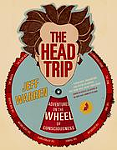 Jeff Warren
Jeff Warren
The Head Trip: Adventures on the Wheel of Consciousness
(Penguin Random House 2007)
Science journalist Jeff Warren explores twelve natural states of consciousness available to us everyday, each offering its own kind of knowledge and insight – its own adventure. Along the way, he talks to neuroscientists, chronobiologists, anthropologists, monks, and many others who illuminate his stories with cutting-edge science and age-old wisdom. See Penguin Random House | Amazon | Google
 Sydney Shoemaker
Sydney Shoemaker
Physical Realization
(Oxford 2007)
Physicalism requires that the mental properties of a person are ‘realized in’ his or her physical properties and that all instantiations of properties in macroscopic objects are realized in microphysical states of affairs. Shoemaker offers an account of both these sorts of realization, one which allows the realized properties to be causally efficacious. See Oxford | Amazon | Google
 Jamie Carnie
Jamie Carnie
Blue Sky Thoughts: Colour, Consciousness and Reality
(Marion Boyars 2007)
For centuries philosophers have disputed whether the sky really is blue or whether this ‘blueness’ is only in the eye of the beholder. Carnie offers a new perspective on the way our senses operate, setting out to save our instinctive belief that colors, sounds, flavors, textures, and scents are features of the ‘real’ world and not just mental constructs that disappear the moment we look away. See Amazon | Google
 J. T. Ismael
J. T. Ismael
The Situated Self
(Oxford 2007)
Ismael tackles a philosophical question that goes back to Descartes: What am I? The self is not a mere thing among things—but if so, what is it, and what is its relationship to the world? Ismael offers a naturalistic account of mind and self, emphasizing the construction of internal reflexive models that represent the external world and one’s place in it. See Oxford | Amazon | Google
 Henrik Lagerlund (ed.)
Henrik Lagerlund (ed.)
Forming the Mind: Essays on the Internal Senses and the Mind/Body Problem from Avicenna to the Medical Enlightenment
(Springer 2007)
This collection of essays deals with the internal senses, the mind-body problem, and other problems associated with the concept of mind as it developed from Avicenna to the medical enlightenment. Bringing together scholars in the Arabic, Jewish and Western philosophical traditions, it shows how fruitful it is to see the period between 1100 and 1700 as one continuous tradition. See Amazon | Google
 Robin Le Poidevin
Robin Le Poidevin
The Images of Time: An Essay on Temporal Representation
(Oxford 2007)
Le Poidevin examines how we perceive time and change, the relation of memory to the past, the attempt to represent change and movement in art, and the nature of fictional time. These apparently disparate questions raise central problems for our philosophical understanding of both mental representation and of time. See Oxford | Amazon | Google | Ian B. Phillips review (pdf) | Roman Frigg review (pdf)
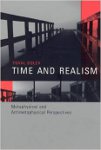 Yuval Dolev
Yuval Dolev
Time and Realism: Metaphysical and Antimetaphysical Perspectives
(MIT 2007)
Does time really pass? Some analytic philosophers insist that it does while others think that events at different temporal locations are ontologically equal. Dolev argues that this inconclusive debate is only the first stage in the investigation of time. The next stage, he claims, belongs to a phenomenological analysis that grows naturally out of the analytic enterprise. See MIT | Amazon | Google
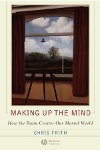 Chris Frith
Chris Frith
Making up the Mind: How the Brain Creates Our Mental World
(Blackwell 2007)
In this book, Frith shows that science can finally start explaining why we experience the world as we do. Anyone interested in human nature—not just the nuts and bolts of neural circuits—will find his story compelling. Frith delves into delusions, illusions, imagination, and imitation, bringing clarity and insight to simple observations and complex experiments alike. See Blackwell | Amazon | Google
 Owen Flanagan
Owen Flanagan
The Really Hard Problem: Meaning in a Material World
(MIT 2007)
If consciousness is the hard problem in mind science, then the really hard problem, writes Owen Flanagan in this provocative book, is explaining how meaning is possible in the material world. He proposes a naturalistic—rather than supernaturalistic—way of living a life that really matters, even if we are just “short-lived pieces of organized cells and tissue.” See MIT | Amazon | Google
 J. J. Valberg
J. J. Valberg
Dream, Death and the Self
(Princeton 2007)
“Might this be a dream?” Valberg tackles this question by asking what is it that would be the dream if “this” were a dream? It turns out to be a subject matter that contains the world, but which is nothing “in itself.” This “personal horizon,” lies at the heart of the topics—the first person, the self, and the self in time—explored at length in the book. See Princeton | Amazon | Google
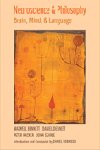 Bennett, Dennett, Hacker, Searle
Bennett, Dennett, Hacker, Searle
Neuroscience and Philosophy: Brain, Mind, and Language
(Columbia 2007)
A vigorous debate over the conceptual presuppositions of cognitive neuroscience. The book begins with an excerpt from Bennett and Hacker’s Philosophical Foundations of Neuroscience (2003), which questions the conceptual commitments of cognitive neuroscientists. Dennett and Searle then criticize their position and Bennett and Hacker respond. See Columbia | Amazon | Google
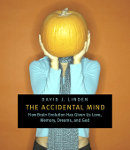 David J. Linden
David J. Linden
The Accidental Mind
(Harvard 2007)
Far from being a paragon of design, Linden shows how the brain is in fact a weird agglomeration of ad-hoc solutions piled on through evolutionary millennia. He also explains how the constraints of evolved brain design have led to almost every transcendent human foible: from our long childhoods to the universal cultural impulse for religion and science. See Harvard | Google
 Rocco J. Gennaro (ed.)
Rocco J. Gennaro (ed.)
The Interplay Between Consciousness and Concepts
(Imprint 2007)
What are concepts? Are they abstract mind-independent objects in some Platonic or Fregean sense or are they better understood as constituents of thoughts? Is thought based on word-like mental representations? Does possessing a concept involve demonstrating some kind of ability? Such questions are tackled in this volume by both scientists and philosophers. See Imprint | Amazon | Google
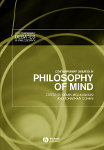 B. McLaughlin & J. Cohen (eds.)
B. McLaughlin & J. Cohen (eds.)
Contemporary Debates in Philosophy of Mind
(Wiley 2007)
In this volume, leading contributors to the field take opposing views on ten contemporary debates in the philosophy of mind. The volume is organized into three sections: the ontology of the mental, the nature of mental content, and the nature of consciousness. A thorough introduction provides a comprehensive background to the issues explored. See Wiley | Google
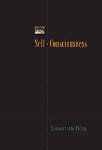 Sebastian Rödl
Sebastian Rödl
Self-Consciousness
(Harvard 2007)
Rödl’s thesis is that self-knowledge is not empirical. It does not spring from sensory affection but is rather knowledge from spontaneity. Its object and source are the subject’s own activity, both theoretical and practical—belief and action. In following Kant and his idealist successors, Rödl attempts to recover the achievement of the German idealist tradition. See Harvard | Google
 A. Chella & R. Manzotti (eds.)
A. Chella & R. Manzotti (eds.)
Artificial Consciousness
(Imprint 2007)
The interdisciplinary collection focuses on the topic of artificial consciousness: from neuroscience to artificial intelligence, from bioengineering to robotics. It provides an overview of the current state of research and includes revised versions of the papers presented at the International Workshop on ‘Artificial Consciousness’ in November 2005 at Agrigento, Italy. See Imprint | Google
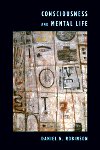 Daniel N. Robinson
Daniel N. Robinson
Consciousness and Mental Life
(Columbia 2007)
Robinson begins with the ancient Greeks and continues through to Descartes, Hume, James, Dennett, Searle, Rorty, Putnam and Parfit. He explains why consciousness is so problematic and asks whether cognitive neuroscience can truly reveal the origins of mental events, emotions, and preference, or if these are better understood by studying the person, not just the brain. See Columbia | Google
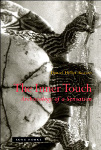 Daniel Heller-Roazen
Daniel Heller-Roazen
The Inner Touch: Archaeology of a Sensation
(Zone 2007)
This book presents the archaeology of a single sense: the sense of being sentient. In twenty-five concise chapters ranging freely between ancient, medieval, and modern cultures, Heller-Roazen provides an elegant and far-reaching philosophical inquiry into a problem that has never been more pressing: what it means to feel that one is alive. See Zone Books | Amazon | Google
 Casey O’Callaghan
Casey O’Callaghan
Sounds: A Philosophical Theory
(Oxford 2007)
Vision dominates philosophical thinking about perception and likewise in cognitive science. O’Callaghan provides instead a systematic treatment of sound and sound experience, and shows how thinking about audition and appreciating the relationships between multiple sense modalities can enrich our understanding of perception and the mind. See Oxford | Amazon | Google
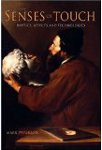 Mark Paterson
Mark Paterson
The Senses of Touch: Haptics, Affects and Technologies
(Berg 2007)
Touch is the first sense to develop in the womb, yet often it is overlooked. Paterson examines touching and feeling as part of the fabric of everyday experience. Tracing tactility within a broad phenomenological framework from Aristotle to the present day, he examines a range of experiences including aesthetics, digital design, visual impairment and touch therapies. See Berg | Amazon | Google
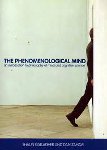 Shaun Gallagher & Dan Zahavi
Shaun Gallagher & Dan Zahavi
The Phenomenological Mind: An Introduction to Philosophy of Mind and Cognitive Science
(Routledge 2007)
This is the first book to properly introduce fundamental questions about the mind from the perspective of phenomenology. It explains the relevance of phenomenology to investigations of the mind and brain and will be useful to anyone who wishes to understand the potential relevance of phenomenology to their research. See Routledge (2nd edition 2012) | Google | Amazon
 Lucy O’Brien
Lucy O’Brien
Self-Knowing Agents
(Oxford 2007)
O’Brien argues that a satisfactory account of first-person reference and self-knowledge must focus on our nature as agents. She considers two main questions. What account of first-person reference can we give that respects the guaranteed nature of such reference? What account can we give of our knowledge of our mental and physical actions? See Oxford | Google | Amazon
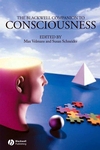 Max Velmans & Susan Schneider (eds.)
Max Velmans & Susan Schneider (eds.)
The Blackwell Companion to Consciousness
(Wiley 2007)
This volume is a comprehensive survey of the subject of consciousness with fifty-five peer-reviewed chapters written by leading authors in the field. Topics include the origins and extent of consciousness, different consciousness experiences, such as meditation and drug-induced states, and the neuroscience of consciousness. See Wiley | Google | Amazon
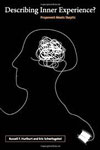 R. T. Hurlburt & Eric Schwitzgebel
R. T. Hurlburt & Eric Schwitzgebel
Describing Inner Experience? – Proponent Meets Skeptic
(MIT 2007)
A psychologist and a philosopher discuss the extent to which we can report accurately on our own conscious experience. The psychologist argues that improved methods of introspective reporting make accurate accounts of inner experience possible; The philosopher believes that any introspective reporting is inevitably prone to error. See MIT | Google
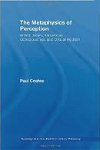 Paul Coates
Paul Coates
The Metaphysics of Perception: Wilfrid Sellars, Critical Realism and the Nature of Experience
(Routledge 2007)
This book offers a systematic critique of several contemporary direct realist theories of perception and defends a novel way of understanding perception and metaphysics—a version of the causal theory—that the author locates in the critical realist tradition of which Wilfrid Sellars is the main recent exponent. See Routledge | Google | Amazon | Review by Matthew Burstein
 Ryan Nichols
Ryan Nichols
Thomas Reid’s Theory of Perception
(Oxford 2007)
Nichols offers the first comprehensive interpretation of Thomas Reid’s theory of perception, by far the most important feature of Reid’s philosophical system. He demonstrates the importance of Reid’s work in the development of modern philosophy and offers what will be, for a long time to come, the definitive analysis of his views on perception. See Oxford | Amazon | Google
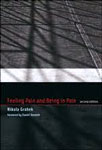 Nikola Grahek
Nikola Grahek
Feeling Pain and Being in Pain
(MIT 2007, second edition, with a foreword by Daniel Dennett)
Grahek examines two of the most radical dissociation syndromes to be found in human pain experience: pain without painfulness and painfulness without pain, and shows how much they have to teach us about the complex nature of pain and its sensory, cognitive, and behavioral components. Originally published in 2001. See MIT | Amazon | Google | Murat Aydede review
 Heinämaa, Lähteenmäki, Remes (eds.)
Heinämaa, Lähteenmäki, Remes (eds.)
Consciousness: From Perception to Reflection in the History of Philosophy
(Springer 2007 – Studies in the history of philosophy of mind, vol. 4)
This volume investigates ancient, medieval, early modern, and modern discussions of the mind in their original philosophical contexts and shows that, while the concept of consciousness was explicated relatively late in the tradition, its central features, such as reflexivity, subjectivity and aboutness, attained avid interest very early in philosophical debates. See Springer | Google
 Bachmann, Breitmeyer, Ogmen (eds.)
Bachmann, Breitmeyer, Ogmen (eds.)
Experimental Phenomena of Consciousness: A Brief Dictionary
(Oxford 2007)
The definitive collection of consciousness phenomena in which awareness emerges as an experimental variable. With its comprehensive yet succinct entries, arranged alphabetically, this dictionary will be a valuable reference tool for anyone investigating consciousness, cognition, perception, and attention. See Oxford (2nd edition 2011) | Amazon | Google
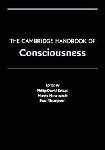 Zelazo, Moscovitch, Thompson (eds.)
Zelazo, Moscovitch, Thompson (eds.)
The Cambridge Handbook of Consciousness
(Cambridge 2007)
After decades of scientific illegitimacy, consciousness re-emerged as a focus of research at the end of the last century and has remained so for nearly twenty years. There are now so many lines of investigation that the field may benefit from a book that pulls everything together. This authoritative desk reference will also serve as an advanced textbook. See Cambridge | Google
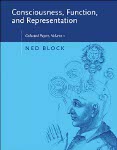 Ned Block
Ned Block
Consciousness, Function, and Representation: Collected Papers, Volume 1
(MIT 2007)
This volume of Ned Block’s writings collects his papers on consciousness, functionalism, and representationism in one convenient location. It brings together papers that have appeared primarily in journals and conference proceedings and may be regarded as Block’s most complete statement of his position on consciousness. See MIT | Amazon | Google

The Head Trip: Adventures on the Wheel of Consciousness
(Penguin Random House 2007)
Science journalist Jeff Warren explores twelve natural states of consciousness available to us everyday, each offering its own kind of knowledge and insight – its own adventure. Along the way, he talks to neuroscientists, chronobiologists, anthropologists, monks, and many others who illuminate his stories with cutting-edge science and age-old wisdom. See Penguin Random House | Amazon | Google

Physical Realization
(Oxford 2007)
Physicalism requires that the mental properties of a person are ‘realized in’ his or her physical properties and that all instantiations of properties in macroscopic objects are realized in microphysical states of affairs. Shoemaker offers an account of both these sorts of realization, one which allows the realized properties to be causally efficacious. See Oxford | Amazon | Google

Blue Sky Thoughts: Colour, Consciousness and Reality
(Marion Boyars 2007)
For centuries philosophers have disputed whether the sky really is blue or whether this ‘blueness’ is only in the eye of the beholder. Carnie offers a new perspective on the way our senses operate, setting out to save our instinctive belief that colors, sounds, flavors, textures, and scents are features of the ‘real’ world and not just mental constructs that disappear the moment we look away. See Amazon | Google

The Situated Self
(Oxford 2007)

Ismael tackles a philosophical question that goes back to Descartes: What am I? The self is not a mere thing among things—but if so, what is it, and what is its relationship to the world? Ismael offers a naturalistic account of mind and self, emphasizing the construction of internal reflexive models that represent the external world and one’s place in it. See Oxford | Amazon | Google

Forming the Mind: Essays on the Internal Senses and the Mind/Body Problem from Avicenna to the Medical Enlightenment
(Springer 2007)

This collection of essays deals with the internal senses, the mind-body problem, and other problems associated with the concept of mind as it developed from Avicenna to the medical enlightenment. Bringing together scholars in the Arabic, Jewish and Western philosophical traditions, it shows how fruitful it is to see the period between 1100 and 1700 as one continuous tradition. See Amazon | Google

The Images of Time: An Essay on Temporal Representation
(Oxford 2007)

Le Poidevin examines how we perceive time and change, the relation of memory to the past, the attempt to represent change and movement in art, and the nature of fictional time. These apparently disparate questions raise central problems for our philosophical understanding of both mental representation and of time. See Oxford | Amazon | Google | Ian B. Phillips review (pdf) | Roman Frigg review (pdf)

Time and Realism: Metaphysical and Antimetaphysical Perspectives
(MIT 2007)

Does time really pass? Some analytic philosophers insist that it does while others think that events at different temporal locations are ontologically equal. Dolev argues that this inconclusive debate is only the first stage in the investigation of time. The next stage, he claims, belongs to a phenomenological analysis that grows naturally out of the analytic enterprise. See MIT | Amazon | Google

Making up the Mind: How the Brain Creates Our Mental World
(Blackwell 2007)
In this book, Frith shows that science can finally start explaining why we experience the world as we do. Anyone interested in human nature—not just the nuts and bolts of neural circuits—will find his story compelling. Frith delves into delusions, illusions, imagination, and imitation, bringing clarity and insight to simple observations and complex experiments alike. See Blackwell | Amazon | Google

The Really Hard Problem: Meaning in a Material World
(MIT 2007)

If consciousness is the hard problem in mind science, then the really hard problem, writes Owen Flanagan in this provocative book, is explaining how meaning is possible in the material world. He proposes a naturalistic—rather than supernaturalistic—way of living a life that really matters, even if we are just “short-lived pieces of organized cells and tissue.” See MIT | Amazon | Google

Dream, Death and the Self
(Princeton 2007)
“Might this be a dream?” Valberg tackles this question by asking what is it that would be the dream if “this” were a dream? It turns out to be a subject matter that contains the world, but which is nothing “in itself.” This “personal horizon,” lies at the heart of the topics—the first person, the self, and the self in time—explored at length in the book. See Princeton | Amazon | Google

Neuroscience and Philosophy: Brain, Mind, and Language
(Columbia 2007)

A vigorous debate over the conceptual presuppositions of cognitive neuroscience. The book begins with an excerpt from Bennett and Hacker’s Philosophical Foundations of Neuroscience (2003), which questions the conceptual commitments of cognitive neuroscientists. Dennett and Searle then criticize their position and Bennett and Hacker respond. See Columbia | Amazon | Google

The Accidental Mind
(Harvard 2007)
Far from being a paragon of design, Linden shows how the brain is in fact a weird agglomeration of ad-hoc solutions piled on through evolutionary millennia. He also explains how the constraints of evolved brain design have led to almost every transcendent human foible: from our long childhoods to the universal cultural impulse for religion and science. See Harvard | Google

The Interplay Between Consciousness and Concepts
(Imprint 2007)
What are concepts? Are they abstract mind-independent objects in some Platonic or Fregean sense or are they better understood as constituents of thoughts? Is thought based on word-like mental representations? Does possessing a concept involve demonstrating some kind of ability? Such questions are tackled in this volume by both scientists and philosophers. See Imprint | Amazon | Google

Contemporary Debates in Philosophy of Mind
(Wiley 2007)
In this volume, leading contributors to the field take opposing views on ten contemporary debates in the philosophy of mind. The volume is organized into three sections: the ontology of the mental, the nature of mental content, and the nature of consciousness. A thorough introduction provides a comprehensive background to the issues explored. See Wiley | Google

Self-Consciousness
(Harvard 2007)
Rödl’s thesis is that self-knowledge is not empirical. It does not spring from sensory affection but is rather knowledge from spontaneity. Its object and source are the subject’s own activity, both theoretical and practical—belief and action. In following Kant and his idealist successors, Rödl attempts to recover the achievement of the German idealist tradition. See Harvard | Google

Artificial Consciousness
(Imprint 2007)
The interdisciplinary collection focuses on the topic of artificial consciousness: from neuroscience to artificial intelligence, from bioengineering to robotics. It provides an overview of the current state of research and includes revised versions of the papers presented at the International Workshop on ‘Artificial Consciousness’ in November 2005 at Agrigento, Italy. See Imprint | Google

Consciousness and Mental Life
(Columbia 2007)
Robinson begins with the ancient Greeks and continues through to Descartes, Hume, James, Dennett, Searle, Rorty, Putnam and Parfit. He explains why consciousness is so problematic and asks whether cognitive neuroscience can truly reveal the origins of mental events, emotions, and preference, or if these are better understood by studying the person, not just the brain. See Columbia | Google

The Inner Touch: Archaeology of a Sensation
(Zone 2007)
This book presents the archaeology of a single sense: the sense of being sentient. In twenty-five concise chapters ranging freely between ancient, medieval, and modern cultures, Heller-Roazen provides an elegant and far-reaching philosophical inquiry into a problem that has never been more pressing: what it means to feel that one is alive. See Zone Books | Amazon | Google

Sounds: A Philosophical Theory
(Oxford 2007)
Vision dominates philosophical thinking about perception and likewise in cognitive science. O’Callaghan provides instead a systematic treatment of sound and sound experience, and shows how thinking about audition and appreciating the relationships between multiple sense modalities can enrich our understanding of perception and the mind. See Oxford | Amazon | Google

The Senses of Touch: Haptics, Affects and Technologies
(Berg 2007)
Touch is the first sense to develop in the womb, yet often it is overlooked. Paterson examines touching and feeling as part of the fabric of everyday experience. Tracing tactility within a broad phenomenological framework from Aristotle to the present day, he examines a range of experiences including aesthetics, digital design, visual impairment and touch therapies. See Berg | Amazon | Google

The Phenomenological Mind: An Introduction to Philosophy of Mind and Cognitive Science
(Routledge 2007)

This is the first book to properly introduce fundamental questions about the mind from the perspective of phenomenology. It explains the relevance of phenomenology to investigations of the mind and brain and will be useful to anyone who wishes to understand the potential relevance of phenomenology to their research. See Routledge (2nd edition 2012) | Google | Amazon

Self-Knowing Agents
(Oxford 2007)
O’Brien argues that a satisfactory account of first-person reference and self-knowledge must focus on our nature as agents. She considers two main questions. What account of first-person reference can we give that respects the guaranteed nature of such reference? What account can we give of our knowledge of our mental and physical actions? See Oxford | Google | Amazon

The Blackwell Companion to Consciousness
(Wiley 2007)

This volume is a comprehensive survey of the subject of consciousness with fifty-five peer-reviewed chapters written by leading authors in the field. Topics include the origins and extent of consciousness, different consciousness experiences, such as meditation and drug-induced states, and the neuroscience of consciousness. See Wiley | Google | Amazon

Describing Inner Experience? – Proponent Meets Skeptic
(MIT 2007)

A psychologist and a philosopher discuss the extent to which we can report accurately on our own conscious experience. The psychologist argues that improved methods of introspective reporting make accurate accounts of inner experience possible; The philosopher believes that any introspective reporting is inevitably prone to error. See MIT | Google

The Metaphysics of Perception: Wilfrid Sellars, Critical Realism and the Nature of Experience
(Routledge 2007)

This book offers a systematic critique of several contemporary direct realist theories of perception and defends a novel way of understanding perception and metaphysics—a version of the causal theory—that the author locates in the critical realist tradition of which Wilfrid Sellars is the main recent exponent. See Routledge | Google | Amazon | Review by Matthew Burstein

Thomas Reid’s Theory of Perception
(Oxford 2007)

Nichols offers the first comprehensive interpretation of Thomas Reid’s theory of perception, by far the most important feature of Reid’s philosophical system. He demonstrates the importance of Reid’s work in the development of modern philosophy and offers what will be, for a long time to come, the definitive analysis of his views on perception. See Oxford | Amazon | Google

Feeling Pain and Being in Pain
(MIT 2007, second edition, with a foreword by Daniel Dennett)

Grahek examines two of the most radical dissociation syndromes to be found in human pain experience: pain without painfulness and painfulness without pain, and shows how much they have to teach us about the complex nature of pain and its sensory, cognitive, and behavioral components. Originally published in 2001. See MIT | Amazon | Google | Murat Aydede review

Consciousness: From Perception to Reflection in the History of Philosophy
(Springer 2007 – Studies in the history of philosophy of mind, vol. 4)

This volume investigates ancient, medieval, early modern, and modern discussions of the mind in their original philosophical contexts and shows that, while the concept of consciousness was explicated relatively late in the tradition, its central features, such as reflexivity, subjectivity and aboutness, attained avid interest very early in philosophical debates. See Springer | Google

Experimental Phenomena of Consciousness: A Brief Dictionary
(Oxford 2007)
The definitive collection of consciousness phenomena in which awareness emerges as an experimental variable. With its comprehensive yet succinct entries, arranged alphabetically, this dictionary will be a valuable reference tool for anyone investigating consciousness, cognition, perception, and attention. See Oxford (2nd edition 2011) | Amazon | Google

The Cambridge Handbook of Consciousness
(Cambridge 2007)
After decades of scientific illegitimacy, consciousness re-emerged as a focus of research at the end of the last century and has remained so for nearly twenty years. There are now so many lines of investigation that the field may benefit from a book that pulls everything together. This authoritative desk reference will also serve as an advanced textbook. See Cambridge | Google

Consciousness, Function, and Representation: Collected Papers, Volume 1
(MIT 2007)

This volume of Ned Block’s writings collects his papers on consciousness, functionalism, and representationism in one convenient location. It brings together papers that have appeared primarily in journals and conference proceedings and may be regarded as Block’s most complete statement of his position on consciousness. See MIT | Amazon | Google
Menu
 What’s a logical paradox?
What’s a logical paradox? Achilles & the tortoise
Achilles & the tortoise The surprise exam
The surprise exam Newcomb’s problem
Newcomb’s problem Newcomb’s problem (sassy version)
Newcomb’s problem (sassy version) Seeing and being
Seeing and being Logic test!
Logic test! Philosophers say the strangest things
Philosophers say the strangest things Favourite puzzles
Favourite puzzles Books on consciousness
Books on consciousness Philosophy videos
Philosophy videos Phinteresting
Phinteresting Philosopher biographies
Philosopher biographies Philosopher birthdays
Philosopher birthdays Draft
Draftbarang 2009-2024  wayback machine
wayback machine
 wayback machine
wayback machine